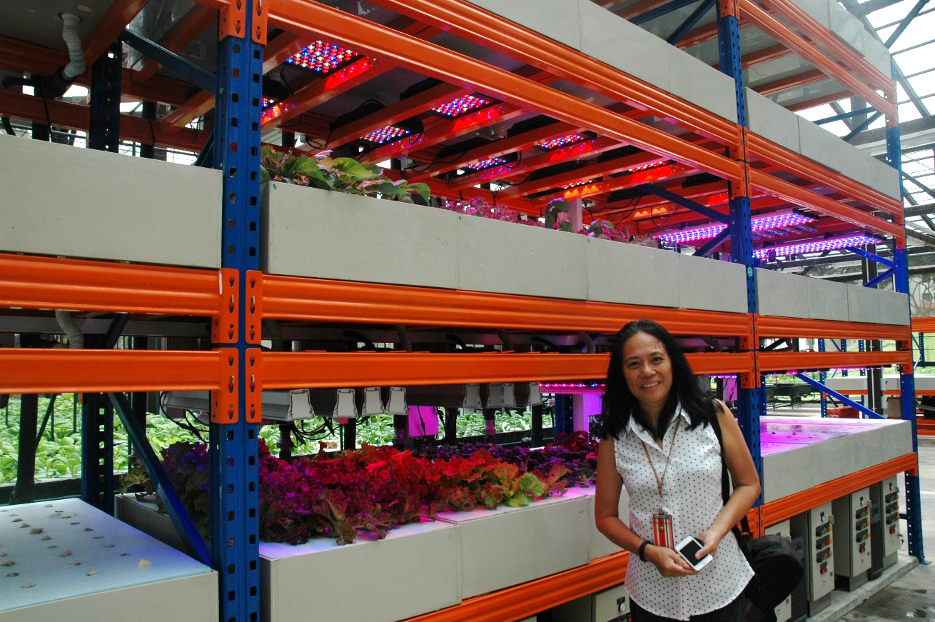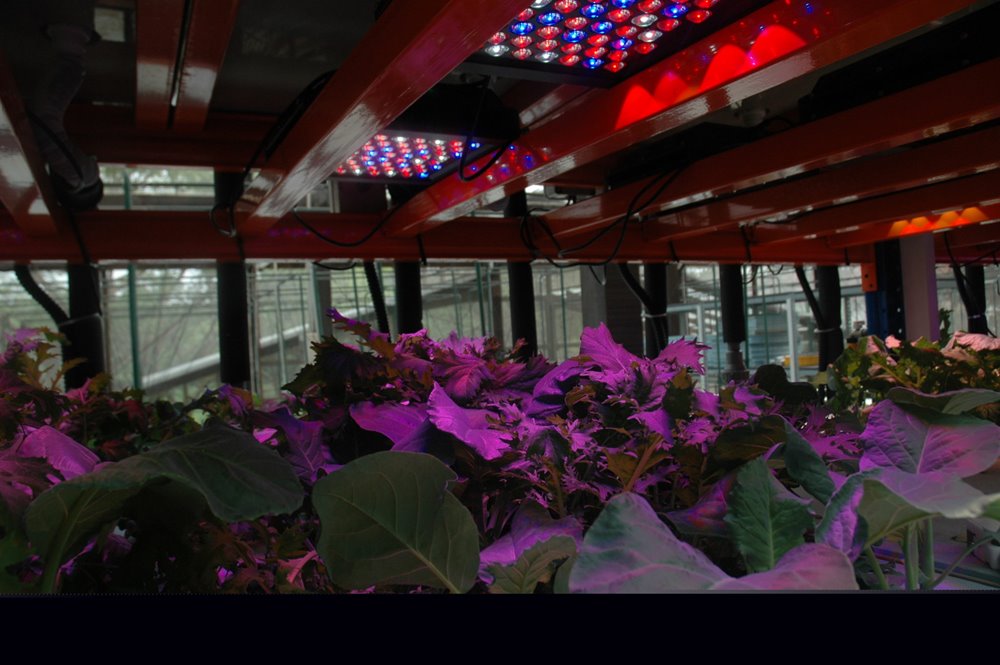Towards Food Security and Sustainability in Singapore
30 Dec 2018
Vertical farming system integrated with LED helps to cultivate leafy vegetables more sustainably
Keeping a resilient supply of safe and nutritional food at affordable prices is a global challenge. Singapore imports over 90 per cent of food consumed locally, which means that our food supply is particularly threatened by price fluctuations, geopolitical uncertainties and climate change.
One of the ways to ensure food security and sustainability in Singapore is to optimise local farming and production capabilities. In a land-scarce Singapore, there is a need to develop farming systems that can increase productivity significantly. Furthermore, increasing the efficiency of the use of our energy and water resources is essential to minimising crop production costs.
To meet these challenges, Associate Professor He Jie from the National Institute of Education developed a LED-integrated vertical aeroponic farming (VAF) system, for the cultivation of different local popular leafy vegetables such as Chinese broccoli (Brassica alboglabra) and Nai Bai (Brassica chinensis), and high valued leafy temperate vegetables including red- and green-leaved lettuce (Lactuca sativa), wild rocket (Eruca sativa), mizuna (Brassica juncea var. japonica) and ice plant (Mesembryanthem crystalliuhum).

Local vegetables such Nai Bai and lettuce can be grown in the VAF system
The LED-integrated vertical aeroponic farming system has three main components. Firstly, a vertical farming system is used, where growing units are stacked over one another. This system addresses land concerns as farming is done vertically. Secondly, an aeroponic system – a soilless method where plant roots are suspended in the air while a nutrient solution is delivered to them – is used. This addresses water resource issues as aeroponic cultures require significantly less water. Thirdly, the combinations of different LED spectra are used to provide effective and uniform light to the growing units, and which enhance photosynthesis and maximize crop density, productivity, and even the quality of specific crops.
Since 2016, the LED-integrated vertical aeroponic farming has been made available for plant biologists to perform experiments and collect scientific data, so as to advance existing understanding of constraints to crop production and create new knowledge on vertical urban farming.
The NIE team is currently looking into the application of LED lighting and seawater to grow different halophyte vegetables. As Singapore’s most scarce resource is water, using seawater to mass produce halophytes as vegetables could therefore be a possible strategy to curb the water issue.